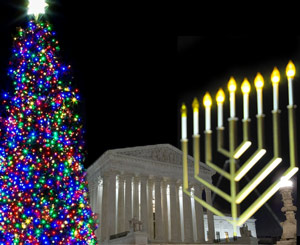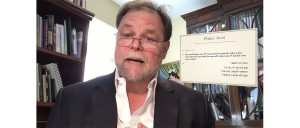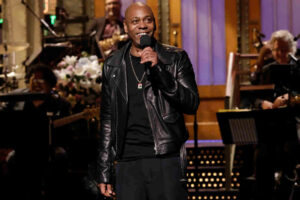We use Shir Hashirim as part of the imagery in welcoming Shabbat.
12 Tribes Music shares this love song.
Shabbat Shalom
We use Shir Hashirim as part of the imagery in welcoming Shabbat.
12 Tribes Music shares this love song.
Shabbat Shalom
Fess up– Hanukkah is the Jewish Christmas!
Before I continue, I will let those of you gasping for air catch your breath.
Yes, indeed, the rabbi went there! But it is hard to refute the statement. And you know what else? It is okay.
Here in the United States, we have thought longingly of the Christmas portrayed ironically by Irving Berlin- replete with a white (from the snow, that is) Christmas with cards, sleigh bells, and glistening trees. The Coca-Cola Santa Claus brings presents to everyone traveling on a flying sleigh powered by eight reindeer (nine including Rudolph), Christmas Trees, gifts, love, and good cheer. Of course, once the marketers got hold of this, they commercialized the holiday even further. Everyone who ever sang anything now records an album of Christmas songs or has a television Christmas special.
Christmas with cards, sleigh bells, and glistening trees. The Coca-Cola Santa Claus brings presents to everyone traveling on a flying sleigh powered by eight reindeer (nine including Rudolph), Christmas Trees, gifts, love, and good cheer. Of course, once the marketers got hold of this, they commercialized the holiday even further. Everyone who ever sang anything now records an album of Christmas songs or has a television Christmas special.
Who wouldn’t want to be a part of this party?
So we have amped up Hanukkah, a minor yet complicated holiday, not even part of the Jewish Bible. Our Acceptance in this country is the great miracle of our time. And if we could place the menorah in the window without fear of retribution, what else might we enjoy? The secularized Christmas is at the center of the American holiday season, bounded by Thanksgiving and New Year’s.
So we are in full bloom- we have Hanukkah bushes, lights of blue and white to decorate the house, and latkes and sufganiyot are now things in the American public space! Giant menorahs are lit alongside the Christmas trees, eclipsing the simple manger scenes of the holiday’s religious roots. It is a mash-up of the best our traditions have to offer, and we all join together in the kind of unity we could only pray might somehow extend to all the other days of the year (either 364 if you are Christian or 357 if you are Jewish).
scenes of the holiday’s religious roots. It is a mash-up of the best our traditions have to offer, and we all join together in the kind of unity we could only pray might somehow extend to all the other days of the year (either 364 if you are Christian or 357 if you are Jewish).
They say competition is a good thing. And arguably, Hanukkah is a bigger, better celebration because of Christmas.
Let us wish everyone Happy Holidays and a year of bounty and joy. Let us thank God for bringing us to a time when our lights can burn brightly, and we can be with our brothers and sisters; whatever their faith traditions, we are together here in the United States.
We often forget or become numb to how commonplace the daily carnage has become.
And because of our numbness, we require a mass casualty event to jolt our senses and awareness.
Sadly, this means that the lives of all the individuals murdered go unnoticed. The tragic loss of children becomes part of the daily process, cold statistics not unlike the cold bodies left in the wake of this national nightmare.
We must accept that although many consider shooting a sport (hunting, target practice, etc.), the purpose of a gun is to serve as a deadly weapon. A gun is used to kill. And outside the hunter’s blind or shooting range, most guns ultimately aim at people, and people die.
There are many reasons for the prevalence of guns and the ensuing gun violence. But at its core is a fundamental rejection of a basic premise of our society, namely, we are a nation of laws. If those laws are not applied rigorously and uniformly, then grievance arises, and the need to take the law into our own hands ensues.
The mass shooters and street thugs flout the law, and the victims ultimately pay the price of a society unable or unwilling to abide by its own standards of civility.
Taking the guns off the streets is a fantasy or perhaps just a fool’s errand. Only when we fully commit to a holistic approach that requires defending the weak and addressing the issues underlying the reasons people turn to guns, including mental health, lax enforcement of the law, political expediency, and twisting the Second Amendment to paralyze serious conversations, might we as a society begin the process of confronting and vanquishing this scourge.
As the co-chair of the Domestic Affairs Committee of the JCRC of Greater Philadelphia, we are committing ourselves to the issue of Gun Responsibility within the greater context of a Safe Cities Initiative. Our safe city approach is complex and challenging and without a quick fix. But the longer-term payoffs are significant. So I hope we can galvanize our community to engage in this hard work on behalf of all of us.
approach is complex and challenging and without a quick fix. But the longer-term payoffs are significant. So I hope we can galvanize our community to engage in this hard work on behalf of all of us.
As we welcome Shabbat, Hanukkah comes immediately after on the 18th. Six13, the outstanding a capella group shares “Elton Johnukah.” Take a listen and enjoy the music and the joy.
Shabbat Shalom
(PS shout out to Jeff and Ilene for sharing this video with me so I can share it here)
 Dave Chappelle has us all talking. That is precisely what he intended to do.
Dave Chappelle has us all talking. That is precisely what he intended to do.
Chappelle performed a set for his SNL opening monologue. It was incisive and insightful, sometimes hilarious, sometimes very uncomfortable. He spoke things many people would prefer to remain unspoken, which is his job. As a comedian, he observes the human condition and shares his observations. Couched in comedy, he is acerbic, sardonic, and harsh, pushing against the boundaries if not busting through them.
Chappelle is a professional, a master of his craft. He knew his audience, and he knew which buttons he was pushing.
Chappelle made us think, and he made us talk about what he said. That is important. You may have been offended, and that is okay. There were times when I laughed with amusement, and a couple of times, he made me cringe. But the value of his words was that I had to engage them and think about what was being said.
Thank you, Dave Chappelle, for using the power of your platform to make us think. Yasher Koach!
This Shabbat coincides with Veteran’s Day.
Shalom Aleichem seems a particularly appropriate prayer. The Barcelona Gipsy Klezmer Orchestra combines several influences from their home in Spain and Ashkenaz. May the music lift our hearts to welcome Shabbat.
Wishing everyone Shabbat Shalom
There is nothing like the threat of economic consequences to elicit a heartfelt apology.
Yes, that is as cynical as it sounds. The recent antisemitic bile spewed from Kanye West and Kyrie Irving has met with pushback and outrage from the Jewish Community and severe fallout in the business community. And voila, apologies have started to cascade out. But writer/activist George M. Johnson pointedly shared in a recent interview that West had been spewing hatred against the Black community for a while before turning his sights on the Jews. That, however, did not provoke the same level of outrage from either Jews or businesses. This is for reasons ranging from racism to the idea that such vile thoughts didn’t hurt anyone’s bottom line enough.
We all need to do better.
We all must enjoy the same rights and responsibilities in our society; that hatred against one group threatens everyone. Businesses are rarely the bastions of moral virtue. But businesses will respond when we inflict economic consequences on bad behavior, such as not going to Nets games or buying West’s sneakers or clothing, because hatred directed at any group is unacceptable to all of us. This is a call to all who find themselves in a group that has been “othered” in our society and those who enjoy the privilege of not being so ostracized. Jews need to speak for the civil rights of all people, not just Jews. Blacks likewise need to talk about injustice whenever it happens in our society, not just when Black people are affected. And so too with everyone. To echo Langston Hughes, Let America be America for all Americans.
Some hate for hate’s sake and believe we live in a zero-sum game where a gain by me is at your expense. This is patently false. A gain by me in the areas of justice and civil rights is a gain for all of us. We measure the strength of our society not by the will of the stronger but by our ability to protect the vulnerable and give voice to the otherwise unheard and exploited.
I did not have much use for Kanye West before these recent rantings, and I have none now. Irving’s comments are likewise repugnant. And I do not need to patronize brands that undermine the “arc of justice” to which we as Americans should aspire. I support the right to free speech even when it contradicts my values. But words have consequences; Hate speech leads to violence and injustice. That is un-American, where all of us are called to draw the line.
This coming year, may each of us strive to be just a little better- loving and kinder- to each other and to ourselves.
This beautiful message from Central Synagogue in New York is a wonderful way to welcome Shabbat
Shabbat Shalom
Sometimes making it through a year is heroic. The struggles of day-to-day life, frightening world crises, fraught personal relationships, and even making a living presented overwhelming challenges this the past y.ear
For me, Leonard Cohen’s Halleluyah is an anthem speaking to triumph, but like most hard-fought battles, the victorious also depart the field scarred and sometimes bloody. Victory is bittersweet and comes at the cost of leaving us forever changed.
As we reflect on the past year, there were moments of accomplishment and hardship. As we seek the forgiveness of others, as our tradition requires, we must remember to forgive ourselves. We often fell short of the mark and were less than our best selves. Understanding that and seeking to do better are the first steps to returning to a place where the Days of Awe become an opportunity to start afresh. Forgiveness that admits our shortcomings and comforts us while encouraging us to do better gives us the strength and vision to make the new year one of hope and possibilities.
L’Shanah Tova Tikateivu, May you be inscribed in the book of life.
Shabbat Shalom
For this final Shabbat of Elul, I share Leonard Cohen’s Halleluyah, among the most moving and beautiful song poems ever written. This version is in Hebrew.
The tensions between generations has existed, likely from the beginning. Cat Stevens (Yusuf), a favorite troubadour of my youth, captures the issue in his iconic song, Father & Son. As we struggle our differences, let’s also treasure the things that link us together.
Shabbat Shalom